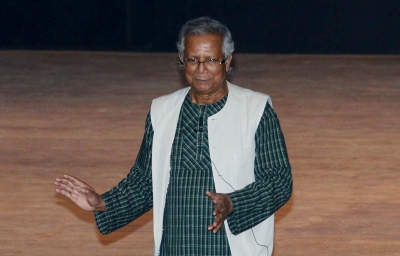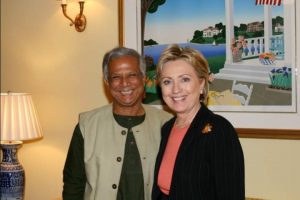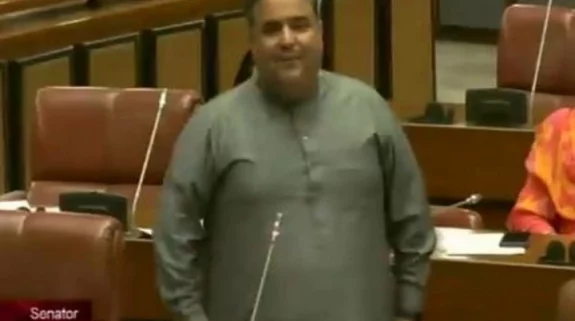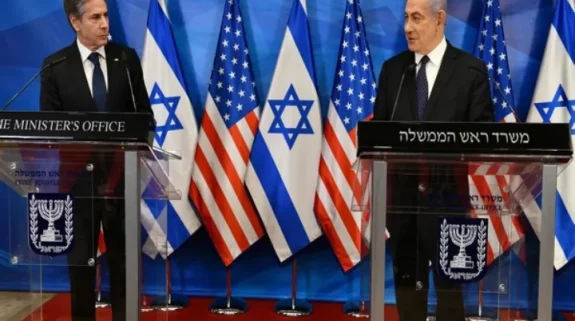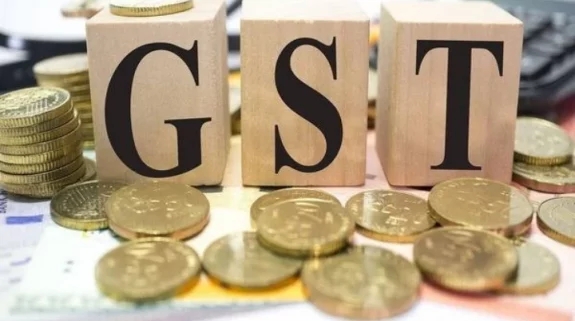Let us begin with some of the contents of the open letter which 177 high-profile global personalities recently sent to Bangladesh Prime Minister Sheikh Hasina in defence of the Nobel laureate Professor Muhammad Yunus.
Observe:
‘We believe it is of the utmost importance that the upcoming national election be free and fair . . .’
‘One of the threats to human rights that concerns us in the present context is the case of Nobel Prize laureate Professor Muhammad Yunus. We are alarmed that he has recently been targeted by what we believe to be continuous judicial harassment.’
‘We respectfully ask you that you immediately suspend the current judicial proceedings against Professor Yunus, followed by a review of the charges by a panel of impartial judges drawn from within your nation with some role for internationally recognised legal experts. We are confident that any thorough review of the anti-corruption and labour law cases against him will result in his acquittal.’
‘We will join with millions of concerned citizens around the world in closely tracking how these matters are resolved in the days ahead.’
Obviously, the worries these personalities, Nobel laureates and others, have expressed about the legal travails of Professor Yunus are understandable. For Bangladesh’s people, Yunus remains a remarkable and respected figure for his contributions to the country over the past many decades. That he has been the recipient of the Nobel Prize for Peace is an honour which has vicariously been shared by the people of Bangladesh.
However, where the legal issues relating to Professor Yunus are concerned, the writers of the letter would have done well to come forth with their expectation that the law would be properly and judiciously and impartially applied in dealing with the charges that have been laid at the Nobel laureate’s door.
PM invites foreign experts to assess documents of @Yunus_Centre
Prime Minister Sheikh Hasina on Tuesday invited foreign experts and lawyers to assess and scrutinize the documents submitted against Professor Muhammad Yunus whether there were any injustice or inconsistency… pic.twitter.com/rE02VV6VQD
— Rahat Abir Rupom (@rahatabirrupom) August 31, 2023
But what worries us in Bangladesh, indeed would worry anyone anywhere, is the angry, less than polite tone of the letter written to the Prime Minister. The writers have demanded that the judicial proceedings against Professor Yunus be immediately suspended. It is a demand which is not only shocking but also outrageous. One may have apprehensions about any legal process and its outcome, but one cannot draw conclusions before a final judgment is arrived at in a case. Besides, there is the ethical question here of whether personalities, for all their importance on the global scene, can ask a government to drop the legal proceedings in a case, to have all charges against an individual reviewed by a panel of impartial judges and to have experts from abroad included in the review process.
It is a demand which is an infringement on the sovereign status of a country, for it asks, in so many words, that such sovereignty be waived in favour of a demand made from overseas that must be entertained. It ought to be for all these letter writers, as it surely is for the people of Bangladesh, to await the outcome of the cases against Professor Yunus. Assuming that the judgment will not be in line with his expectations, the Nobel laureate will have the option to appeal. And the state of Bangladesh will for its part act according to the provisions of the law. Any move by individuals in Bangladesh or abroad to interfere with the working of the legal system will be tantamount to an undermining of the working of the law.
The letter writers have made it known that a thorough review of the cases against Professor Yunus will result in his acquittal. One wonders how they have drawn such a conclusion when proceedings in court are yet ongoing. No legal expert in any country will look kindly on such statements, which are patent attempts to influence the court. The response to that point is simple, in black and white: Every legal difficulty for any individual is worrying for the individual concerned, but when cases are underway in court, the norm for everyone is to wait for the proceedings to end and for judgment to be delivered. A judicial review, once a trial has commenced, would be in violation of the authority of the court already hearing the case. A case simply cannot be suspended, and a court cannot be told it must wash its hands of the entire matter and have the case pass into the hands of others for a review. Legal systems do not work like that, not in Bangladesh, not anywhere else.
And then comes the larger question: On the basis of what moral and legal authority can individuals, such as the writers of the letter, ask the head of government of a country to suspend all legal proceedings against an individual and have all cases against him or her handed over to a review panel? There is that certain whiff of impertinence in the letter. It should have been for its writers to ask Bangladesh’s Prime Minister that the course of justice be applied without fear or favour in the Yunus case.
In these past many weeks, it has become clear that foreign governments and organisations, while calling for free and transparent elections in Bangladesh, have been engaged in a concerted campaign against the Bangladesh government. The suspicion, one which cannot easily be dismissed, is that efforts are underway to ensure that the government led by Prime Minister Sheikh Hasina does not have the opportunity to be re-elected at the forthcoming general election in the country. Curiously, the writers of the letter give themselves away when in the same breath in which they refer to Professor Yunus’ predicament they call for a fair election. The two issues, separate as they are, have nevertheless been incongruously brought together in this letter.
A grave weakness of the letter is the fact that it has been publicised as an open letter to a head of government. Political norms do not permit such sentiments as expressed in the letter to be brought into the public domain but for these sentiments to be made known through contacts with a country’s diplomatic establishment, which then will exercise the authority to forward them to the office of the head of government. In Bangladesh today, these norms are regarded as sacrosanct.
Despite the overt manner in which foreign diplomats based in Dhaka have been commenting on the upcoming elections, no writers or intellectuals or members of civil society in Bangladesh have imagined writing open letters on similar issues to the heads of government and state of the foreign diplomats concerned. This letter in question, from that broad perspective, was therefore dismissive of the norms which underlie the rules of diplomatic etiquette. It was an open move aimed at embarrassing a government and indeed a country before the rest of the world over an issue pertaining a single individual.
One wonders if a similar approach to other heads of government on issues related to their countries has been employed in the past by these public figures who have released their letter through the media. Observe:
*Was such a letter of concern despatched to former Bangladesh Prime Minister Khaleda Zia when activists of her political coalition went on the rampage against Awami League supporters and members of the Hindu community immediately after she and her allies won the general election in October 2001?
*Have these reputed letter writers had such missives demanding the freedom of Alexei Navalny sent to President Vladimir Putin and their contents revealed to the public?
*Has there been any instance of scholars and leaders in the West writing an open letter to the Myanmar junta demanding the release of Aung San Suu Kyi and asking that the regime step back from its repudiation of the results of the last election in the country?
*One would like to ask the writers of the letter to Sheikh Hasina if they have ever considered inquiring of the administrations in Washington and Ottawa why they have been sheltering two assassins of Bangabandhu Sheikh Mujibur Rahman for decades despite being fully aware of their complicity in the 15 August 1975 coup d’etat in Bangladesh?
*Will these letter writers publicly demand, through an open letter, that the Pakistan authorities suspend all legal steps against detained former Prime Minister Imran Khan and that he be released?
*To our knowledge, no public letter has been written to the relevant authorities against the continued detention of Julian Assange and against the threat of his being extradited to the United States to face trial. What explains the silence here?
*No western intellectual or political and civil society leader has written any open letter to President Abdel Fatah al-Sisi demanding the release of journalists who have languished in Egyptian prisons for years.
*When the civil war in Sri Lanka came to an end in 2009, was any open letter sent to the government in Colombo demanding an end to the post-conflict persecution of the Tamil population of the country?
*Was any such open letter despatched to the Saudi government demanding to know the details of the murder of the journalist Jamal Khashoggi in the Saudi consulate in Istanbul, the disappearance of his remains and the necessity of those guilty of the crime to be brought to justice?
Hypocrisy is a worm which eats away at the sophistication we expect the world to develop from day to day. We believe in a rules-based world, a cardinal element of which is respect for peoples and governments and systems of justice everywhere. It is not for individuals, no matter how influential their voices are, to arrogate to themselves the right to talk down to government leaders in countries they think will take their behaviour in pusillanimity, to discriminate between nations.
Professor Muhammad Yunus, let it be said again, is a respected personality in Bangladesh. He is currently engaged in a difficult legal campaign to preserve his reputation. The law will and must take its own course.
Let it also be said that Bangladesh is not a banana republic. Its people, its political and social leaders, its civil society are in precious little mood to permit outsiders to believe that they can influence its affairs.
There is something called national self-esteem. Bangladesh’s people have plenty of it.
Also Read: Why Bangladesh and US are unable to shed their historical baggage and reconcile differences
(Syed Badrul Ahsan is a journalist, author and commentator on South Asian and American politics based in Dhaka and London. Views expressed are personal and exclusive to India Narrative)







